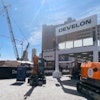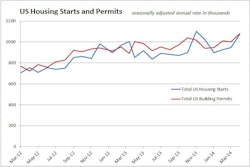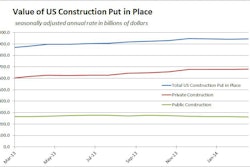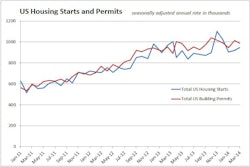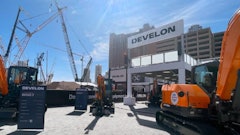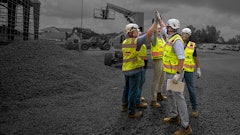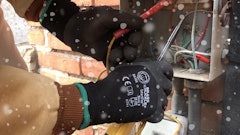Contrary to the prevailing view that only borrowers with pristine credit records can get a mortgage these days, many risky loans are still being made. A new index published by the International Center on Housing Risk at the American Enterprise Institute measures this risk month by month, based on about three-quarters of all home-purchase loans extended across the country. The index clearly shows that many of today's mortgages would not perform well under stressful conditions.
In recent months, half of all the home loans covered by the risk index had a down payment of 5% or less. With so little money down, those borrowers would be underwater with only a modest decline in housing prices. In addition, for nearly half of the recent loans, borrowers' monthly payments on their mortgage and other debt exceeded 38% of their pretax income, the traditional threshold for acceptable payment burdens.
With home prices rising at an unsustainable pace -- 11% in the last year, according to the S&P Case-Shiller index -- the likelihood of a home-price correction climbs.
Reminiscent of regional housing bubbles that triggered the 2006 housing collapse, last year's home-price jump was significantly larger in major markets: 21% in Los Angeles, 23% in San Francisco and 19% in San Diego, for example.
Capricious factors have spurred higher house prices:
- The Fed's easy monetary policy has kept mortgage rates very low
- Strong investor demand for distressed properties
- Limited supply of available homes, with housing starts well below normal
Reflecting these factors, house prices in the hotter markets around the country may already be above the levels warranted by household income, rents and other economic conditions.
Does this mean we are likely to see another housing bubble? That's hard to say. Nonetheless, the risk of a price overshoot of some magnitude is especially high in California. According to Fitch Ratings homes in Los Angeles, San Francisco, Oakland and San Diego are overvalued by 20% or more.
(more on risk of US housing bubble . . . )
